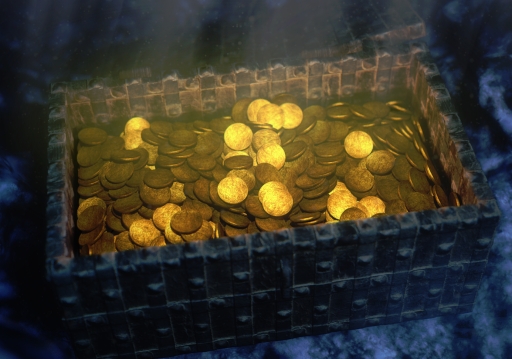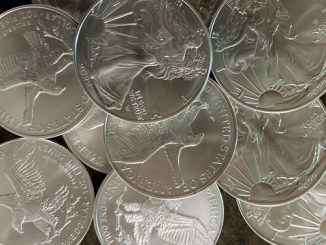
A former deep sea treasure hunter, accused of cheating investors out of the fortune from an 1857 shipwreck, has been ordered to answer questions about the location of 500 missing gold coins.
Tommy Thompson has been held in contempt of court since last December, when Judge Algenon Marbley in Columbus found he violated a plea deal by refusing to respond. Thompson was also ordered to pay $1,000 a day until he answers questions.
Currently, he owes more than $350,000, said Doug Squires, an assistant U.S. attorney.
The coins in question were taken from the S.S. Central America, a Gold Rush-era ship that sank off South Carolina in an 1857 hurricane with thousands of pounds of gold aboard, contributing to an economic panic.
In 1989, Thompson’s crew recovered a treasure-trove of gold coins, the ship’s bell and gold bars “15 times bigger than the largest California gold bar previously known to exist,” the Chicago Tribune reported at the time.
The 161 investors who paid Thompson $12.7 million to find the ship never saw any proceeds. Two sued — a now-deceased investment firm president and the company that once published The Columbus Dispatch newspaper.
A fugitive from Ohio since 2012, Thompson was apprehended in January 2015 along with his longtime female companion at a hotel where he was living near Boca Raton, Florida.
Thompson previously said, without providing details, that the coins were turned over to a trust in Belize. The government, which believes the coins are worth millions of dollars, has doubts about Thompson’s explanation.
Marbley on Monday told Thompson to answer the questions within 30 days.
The judge’s order came after Thompson and his attorneys spent the past month at Marbley’s direction reviewing documents that might hold clues about the location of the coins and other assets worth millions.
Thompson has said he told everything he knew during depositions last year. Todd Long, an attorney for Thompson, told Marbley on Monday that nothing has changed from Thompson’s perspective. “He has nothing further to say,” Long said.
In November, Marbley accused Thompson of faking memory problems and intentionally deceiving authorities about the location of the missing coins minted from gold. Thompson alleged he suffers from a neurological disorder and said he could refresh his memory by reviewing documents in 75 boxes held by the U.S. Marshals Service.
Psychiatric evaluations and results of a September court hearing showed Thompson wasn’t suffering from a condition that would prevent him from complying with his plea deal, Marbley said in the November ruling.
A test by a court-ordered psychiatrist turned up minor memory problems, the psychiatrist said in a sealed document, part of which Marbley quoted in his order.
Thompson “routinely made references to things that demonstrated his retention of information from minutes and hours earlier, he remembered things from one day to the next, he recalled aspects of his various cases with great specificity, and he recalled information about his career and business adventures dating back decades,” according to the evaluation.
Squires said he hopes the government will see the money. “The federal government always works very hard to recover all assets,” he said.
The judge suggested Monday that the time that’s passed since Thompson’s last deposition might give him an opportunity to answer the questions.
“Who knows – he might have an epiphany,” Marbley said. “It is the season of miracles.”
Source:NBC Chicago




Be the first to comment